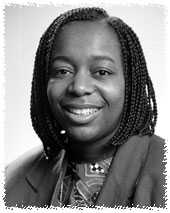How do I find an expert on a particular religion or theological issue?

By Adelle Banks
Religion News Service
Face it now: You will never know everything about religion. The key as a reporter is to learn whom you should know who could ably explain various aspects of the faith groups you cover.
At a small or medium-sized news outlet, some of your best experts will likely be right around you-from the regional administrator of a denomination to the clergyman or woman at the house of worship down the street to the professor at the local, well-established college or university. Local interfaith conferences or church councils often provide good contacts. National Christian, Jewish and Muslim organizations-as well as those of other faiths-may be able to point you to people in your area.
Depending on the approach of your news organization (“all news is local” or not), you also may contact experts across the country who are just a phone call or an e-mail away. Through catalogs and even online bookstores, you can determine who has written and studied topics ranging from the latest worship controversies to movements within evangelical Christianity.
There are organizations of religion scholars and Web sites that can help you find the people you need. Those organizations include the American Academy of Religion (AAR), the Society for the Scientific Study of Religion and the Religious Research Association.
The Internet is a vast resource, saving you and your news entity time and money. Just a few examples of Web sites are www.religionlink.com, which includes links to sites concerning such topics as megachurches, parachurch organizations and denominations and other faith groups; Hartford Seminary’s Web site (//hirr. hartsem.edu), which features studies and statistics about religion; and Profnet (www. profnet.org), which lists public relations officers for colleges and universities nationwide.
Covering smaller, minority religions should be a part of your coverage plan, but will not likely be a weekly activity. Take advantage of building consecrations, changes in leadership or even a workshop to highlight a lesser-known faith group.
For experts on minority religions and to help you determine a group’s validity, try AAR’s Religionsource (http://www.religionsource.org/). You also may check various references to see if others have written about the organization in question or if it is cited in special dictionaries or encyclopedias and on reputable, independent Web sites.
Although you may not have time to devote an entire story to a less-prominent faith, you can include its adherents in more general stories related to reactions to major world events or activities that involve a wide range of community members.
There are certain books that should be on your desk for handy reference: the Yearbook of American and Canadian Churches, “The World’s Religions” by Huston Smith and media guides from faith groups such as the Church of Jesus Christ of Latter-day Saints.
Many (though certainly not all) faith groups-from the Baha’is to Christian Scientists to the Sikhs- have public relations officials who can provide media with materials providing basic answers to questions about their beliefs. You should not hesitate to have these names in your Rolodex. Keep file folders ready to fill when you receive such information. You’ll be glad to have it for future reference.
The key is to approach the beat with the goal of securing as many sources as time permits. Just as your stories are likely to include more than one voice, it’s often good to talk to several experts to learn where their thinking converges and differs. Likewise, contact an inside spokesperson for a faith group as well as an outside observer.
Journalists have a tendency to quote the same experts. Often, you get valuable information when you seek out different voices-authors of new books, scholars working on dissertations, a person attending a religion-related conference who is not necessarily speaking from the dais.
One of the best ways to get additional information is to include a final inquiry in every interview. Even if you have enough information for a particular story, you can always ask interviewees whom else they would recommend speaking to on topics similar to the one you’re discussing. They’ll often give you names to tuck away for the next story.
